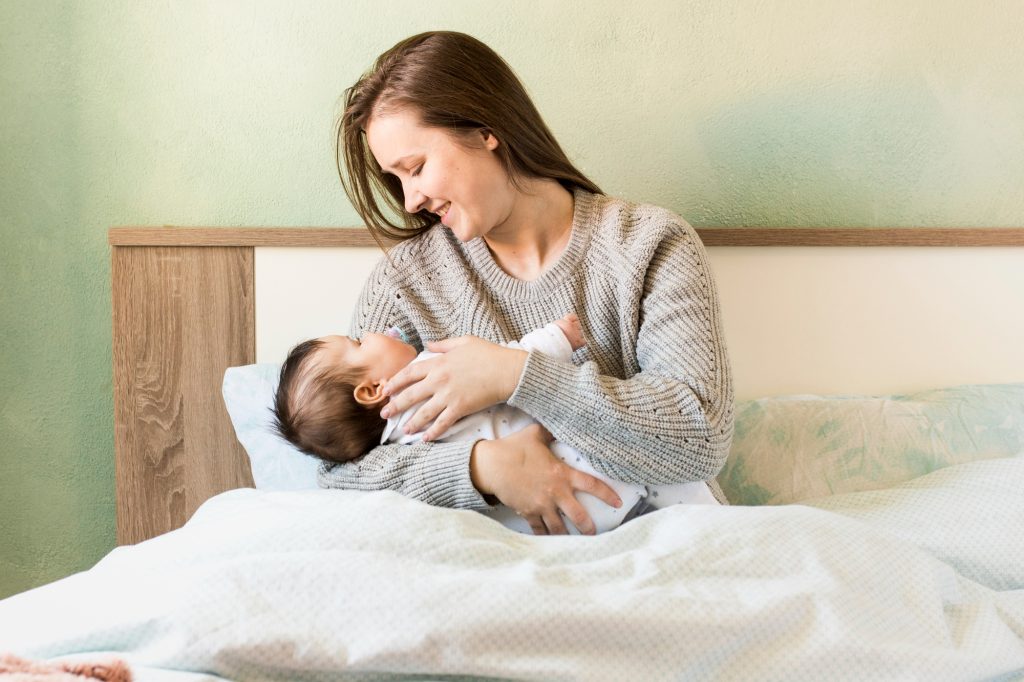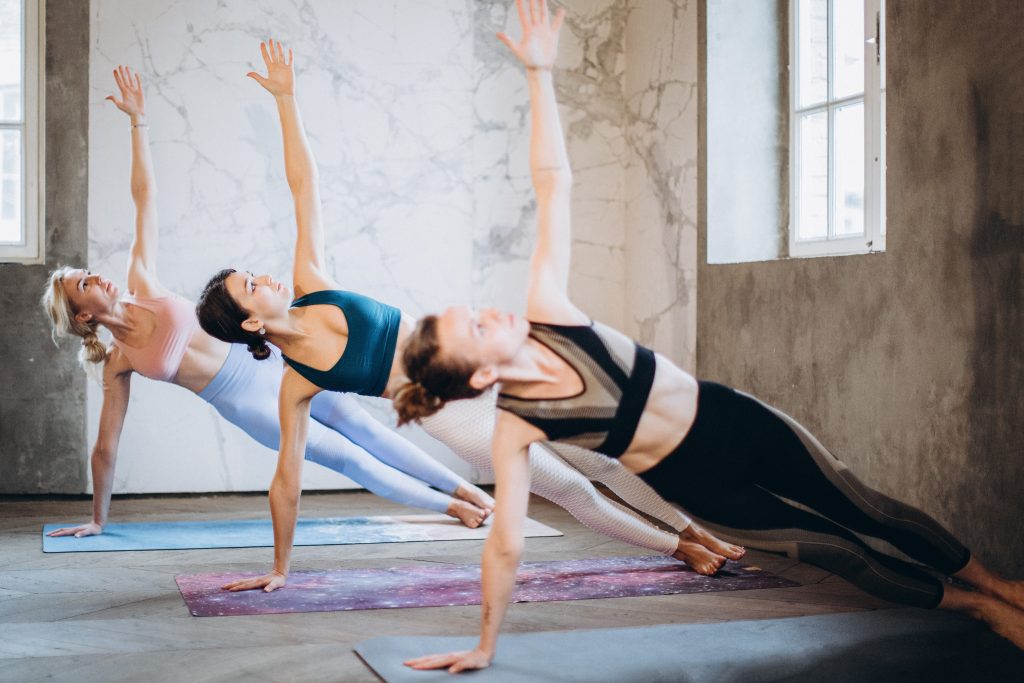Discover the benefits of postpartum yoga and Pilates and find out if there are specialized instructors who can guide you through these practices.
Are There Yoga or Pilates Instructors Specialized in Postpartum Care?
As a new mom, you’re probably eager to get back into shape and reclaim your pre-pregnancy body. But before you jump into just any exercise routine, it’s important to understand the importance of postpartum care. After all, your body has been through a lot during pregnancy and childbirth, and it deserves some extra TLC.
Understanding the Importance of Postpartum Care

Postpartum care is crucial for a healthy recovery and overall well-being after giving birth. It encompasses both physical and emotional aspects, as your body adjusts to its new state and you navigate the rollercoaster of motherhood.
During the postpartum period, your body goes through numerous changes as it heals and returns to its pre-pregnancy state. It’s important to take care of these changes to ensure a quick recovery and prevent any long-term issues that may arise.
One of the most significant physical changes after childbirth is the stretching of abdominal muscles. This stretching can lead to a weakened core, affecting your posture and overall strength. Engaging in postpartum exercises, such as yoga and Pilates, can aid in regaining strength and tone in your muscles. These low-impact exercises are gentle on your healing body while still providing a challenging workout.
In addition to abdominal muscles, childbirth also affects the pelvic floor muscles. These muscles support the bladder, uterus, and rectum, and can become weakened during pregnancy and childbirth. Strengthening the pelvic floor muscles is essential for preventing issues such as urinary incontinence and prolapse. Postpartum exercises like Kegels can help in restoring the strength and function of these muscles.
While physical recovery is crucial, postpartum care also focuses on your emotional well-being. Many moms experience postpartum depression or an emotional rollercoaster after giving birth. It’s essential to address these emotional changes and seek support when needed.
Practicing yoga or Pilates can have a significant impact on your mental health. These mindful exercises promote relaxation, reduce stress, and help you connect with your body and emotions. They create a space for self-care and allow you to focus on your own needs, even in the midst of hectic new-mom life.
Moreover, postpartum care involves providing a nurturing environment for the new mother. This includes ensuring she has enough rest, proper nutrition, and emotional support. Family and friends can play a vital role in providing this support, allowing the new mother to recover and bond with her baby.
It’s important to remember that postpartum care is not a one-size-fits-all approach. Every woman’s experience is unique, and their needs may vary. It’s crucial to consult with healthcare professionals who can provide personalized guidance and support throughout the postpartum period.
The Role of Yoga and Pilates in Postpartum Recovery
Now that we understand the importance of postpartum care, let’s dive into how yoga and Pilates can specifically support your recovery journey.
After giving birth, it’s crucial to prioritize your physical and mental well-being. Yoga and Pilates offer a holistic approach to postpartum recovery, addressing both the physical challenges and emotional changes that come with motherhood.
Benefits of Yoga for New Mothers
Yoga is a fantastic exercise for new moms. It helps you regain core strength, improve flexibility, and restore balance in both mind and body. The gentle yet effective yoga poses can target specific areas like the pelvic floor, abdominal muscles, and back, addressing the physical challenges you may be facing post-birth.
But the benefits of yoga go beyond the physical. As a new mother, you may experience a range of emotions, from joy and excitement to stress and anxiety. Yoga provides a safe space for you to reconnect with yourself, allowing you to find inner peace and calm amidst the chaos of motherhood.
In addition to the physical benefits, yoga also provides a mental and emotional retreat. The mindful breathing techniques and relaxation exercises can aid in stress reduction and promote overall well-being. By incorporating yoga into your postpartum recovery routine, you can create a sense of balance and harmony in your life.
Pilates and Core Strength Restoration
Pilates focuses on core strength and stability, making it an ideal exercise for postpartum recovery. The gentle yet effective movements target your abdominal muscles, helping them regain their tone and strength. By strengthening your core, you can improve your posture and alleviate any discomfort caused by weakened muscles.
But Pilates is not just about physical strength. It also emphasizes proper alignment and posture, which can improve your overall body mechanics and prevent potential issues caused by the physical demands of motherhood. By practicing Pilates, you can develop a strong foundation for your body, allowing you to move with ease and confidence as you care for your baby.
Furthermore, Pilates can also be a form of self-care and self-expression. It provides a space for you to focus on yourself, away from the demands of motherhood. By dedicating time to Pilates, you are prioritizing your well-being and nurturing your body and mind.
In conclusion, both yoga and Pilates offer numerous benefits for postpartum recovery. Whether you choose to incorporate one or both practices into your routine, they can support you in regaining strength, improving flexibility, and finding balance in your new role as a mother. Remember, the journey of postpartum recovery is unique to each individual, so listen to your body and do what feels right for you.
Finding Specialized Yoga and Pilates Instructors
Now that you’re convinced of the benefits of postpartum yoga and Pilates, it’s time to find instructors who specialize in this area. These specialized instructors will have the knowledge and experience to guide you safely through your postpartum fitness journey.
Postpartum yoga and Pilates are not just any ordinary fitness practices. They require a deep understanding of the physical and emotional changes that occur in a woman’s body after giving birth. By finding an instructor who specializes in postpartum fitness, you can ensure that you receive the appropriate guidance and support tailored to your unique needs.
So, what qualifications should you look for in a postpartum fitness instructor? It’s important to find someone who holds certifications in prenatal and postnatal fitness. These certifications indicate that the instructor has undergone specialized training to work with women during and after pregnancy. Additionally, look for instructors who have experience specifically working with postpartum clients. This experience will enable them to address any specific concerns or challenges you may face during your recovery process.
Necessary Qualifications for Postpartum Fitness Instructors
When searching for a postpartum fitness instructor, make sure they have the necessary qualifications. Look for certifications in prenatal and postnatal fitness, as well as experience working specifically with postpartum clients. A knowledgeable and supportive instructor can make all the difference in your recovery process.
Imagine having an instructor who understands the physical changes your body has gone through and can provide modifications and exercises that are safe and effective for your postpartum journey. With the right qualifications, your instructor will be able to guide you through a well-rounded fitness program that not only helps you regain strength and flexibility but also promotes overall well-being and self-care.
Where to Look for Specialized Instructors
There are several avenues to find specialized yoga and Pilates instructors for postpartum care. Start by asking your healthcare provider for recommendations. They may have a list of trusted instructors who specialize in postpartum fitness. Your healthcare provider can also provide valuable insights and guidance on what to look for in an instructor.
In addition to seeking recommendations from your healthcare provider, you can also search online directories for local studios that offer postpartum classes. Many studios have instructors who specialize in postpartum fitness and can provide the guidance you need. Take the time to research different studios and read reviews from other clients to ensure you find a reputable and reliable instructor.
Another great way to find specialized instructors is to connect with other moms in your community or online support groups. These moms have likely gone through similar experiences and can provide personal recommendations based on their own postpartum fitness journeys. Hearing about their positive experiences with certain instructors can give you confidence in your choice and help you find the right fit for your needs.
Remember, finding a specialized yoga and Pilates instructor for your postpartum journey is an investment in your health and well-being. Take the time to do your research, ask for recommendations, and choose an instructor who not only has the necessary qualifications but also makes you feel comfortable and supported throughout your fitness journey.
What to Expect from Postpartum Yoga and Pilates Classes
Now that you’ve found a specialized instructor, you might be wondering what to expect from postpartum yoga and Pilates classes. Let’s shed some light on that!
Typical Class Structure and Exercises
Postpartum yoga and Pilates classes generally begin with gentle warm-up exercises to awaken and activate the muscles. These warm-up sessions help you reconnect with your body, build stability, and prepare for the more challenging exercises to come.
The classes often incorporate specific postpartum exercises targeted at pelvic floor muscle strengthening and core restoration. Modifications and variations are provided to accommodate different fitness levels and body conditions.
Safety Measures and Precautions
Your safety is of utmost importance during postpartum exercise classes. Instructors should prioritize providing a safe and supportive environment for you to exercise in.
They should guide you through proper alignment and breathing techniques, ensuring that you work within your individual capabilities. It’s essential to listen to your body and communicate any discomfort or concerns to the instructor to prevent injury and promote a successful recovery.
Incorporating Yoga and Pilates into Your Postpartum Routine
Finally, let’s talk about how you can incorporate yoga and Pilates into your postpartum routine, alongside all the other demands of new mom life.

Creating a Balanced Fitness Schedule
As a new mom, time is a precious commodity. Finding a balance between taking care of your baby, household chores, and self-care can be challenging. The key is to create a realistic and manageable fitness schedule.
Start with small chunks of time dedicated to yoga or Pilates exercises. Even 10-15 minutes a day can make a difference. Gradually increase the duration and frequency as you find your rhythm and build your strength.
Listening to Your Body’s Needs and Limitations
Remember, you just went through the miraculous journey of pregnancy and childbirth. Your body needs time to heal and recover fully. Be sure to listen to your body’s cues and respect its limitations.
If a particular exercise feels uncomfortable or causes any pain, modify or skip it. Consult with your healthcare provider or instructor if you have any concerns or specific restrictions.
With the right mindset, support, and specialized instructors, yoga and Pilates can be incredibly beneficial for postpartum recovery. Take the time to care for yourself, both physically and emotionally, as you navigate this beautiful new chapter of motherhood.



